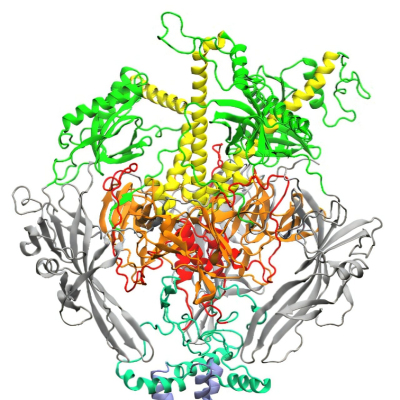The research team explored the innovative technology behind the development of an ADDomer vaccine targeting severe acute respiratory syndrome COVID-19 (SARS-CoV-2).
The study, using an integrated approach, combined synthetic, computational and structural methods with in vitro antibody selection and in vivo immunisation to design, produce and validate nature-inspired nanoparticle-based vaccines and reagents.
The research demonstrates the use of Imophoron’s patented multivalent nanoparticle superbinder technology against SARS-CoV-2, including immune-evasive variants of concern.
Imre Berger, Professor of Biochemistry and Director of the Max Planck-Bristol Centre for Minimal Biology at the University of Bristol, and co-author on the paper, said: "COVID-19 reminds us of the critical importance of being prepared for the next pandemic, requiring innovative approaches to help and speed up reagent and vaccine development against emerging threats.
"Our study demonstrates the use of ADDomer-based nanoparticles in active and passive immunisation and provides a blueprint for developing reagents and vaccines to tackle respiratory viral infections."
Richard Bungay, Chief Executive of Imophoron, commented: "This important paper highlights Imophoron’s unique ADDomer and Gigabody technology platforms and their significant potential in developing novel, thermostable vaccines to combat infectious diseases.
"The research represents a significant milestone for our team of world-class scientists, in collaboration with the excellent team at the University of Bristol, in our ongoing commitment to advancing global health."
Read the original article on University of Bristol.







